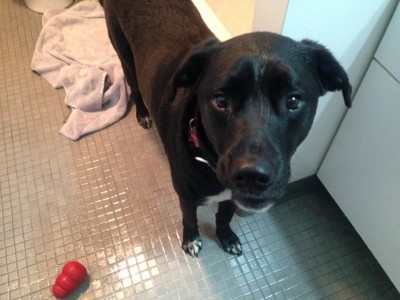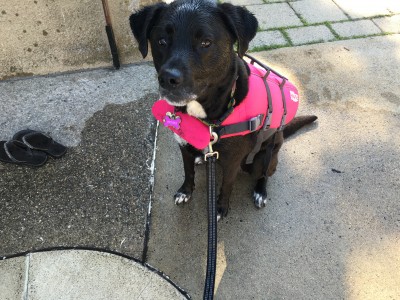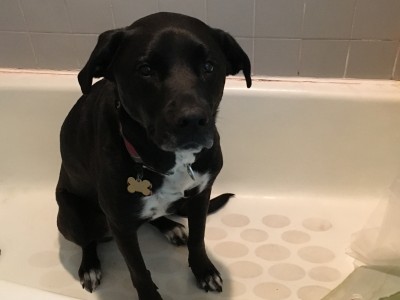Vigil
I like to be alone. It took me a long time to feel that way. When I was in grad school, I lived in a cheap apartment on the border of a neighborhood that was mostly known for gang wars and being the setting for a documentary called (I swear this is real) “Getting high on crack street.” Once while I was having a party, an episode of COPS happened on the sidewalk I traversed every day to leave my apartment. COPS was filming in Lowell and they literally caught some guy and arrested him on my sidewalk. So basically what I’m saying is my apartment was charming. And cheap. But still charming.
Not that long after the COPS incident, my roommate moved out abruptly. Shocking, I know. I was 23 and generally a person who worried a lot about money at that point because we didn’t have money growing up, I paid my way through school myself, and grad students are stereotyped as living off ramen noodles for a reason. Lowell had the cheapest housing in the state at that point, due in large part to its impressive record of violent crime and also its propensity to flood like it was the Merrimack River’s job.
Living in Lowell, you learned to view the Merrimack as an adversary. A worthy opponent. When a river can rise enough to cover four blocks beyond its banks in a foot of water, you respect that river. My little cousin wanted to see how bad the flooding was one time and we walked a few blocks down closer to the university. We identified partially submerged landmarks and then two white plastic chairs just floated by. You know, just on their way to meet up with their chair friends and all the other debris beside a shuttered ice cream place where the flood deposited all the detritus.
Anyway, my roommate moved out abruptly and I was stressed about money because I was always stressed out about about money. I didn’t sleep for two days and on the third night, I ordered the best, greasiest fake Chinese food and ate it while sitting on my living room floor, watching some crappy horror movie. I slept that night, and the following nights, and eventually decided I didn’t want to deal with roommate stress. I decided to live alone.
I worked two full time jobs while in grad school and was also in grad school so I didn’t have a lot of free time. This was helpful in the beginning. I was so tired when I got home that I usually just went to bed. I put Lord of the Rings in my Playstation 2, turned the volume down on my cathode ray tv, and fell asleep. I wasn’t really experiencing being alone. It wasn’t until later when I had a more normally structured work schedule that I had to learn how to keep myself company.
The funny thing is that once I learned how to be alone, I loved it. It alleviated so much stress. When I went to Scandinavia in 2007, I came home, walked up to my apartment, took off all my clothes in the living room and just left them in a pile while I made coffee. Living alone was fantastic. I haven’t lived with anyone who wasn’t my partner in several years and I prefer it that way. I like having the choice to not talk to anyone and to think about things and make decisions on my own.
Being confident in your ability to take care of yourself and support yourself is very empowering and liberating. But it can be isolating, too. In the years since I lived in my charming apartment in Lowell, I have become progressively sicker. It was pretty obvious to my partner at the time but not to most people, even people I was close to. I looked healthy and still worked and fundraised and volunteered and lived a fairly normal life. It became easy to not let on how unwell I was and most people didn’t know until I crashed super hard and needed major surgery and all that.
In the last few weeks, I have finally gotten my lower GI pain mostly under control. My baseline pain is lower but I am still having colitis attacks about twice a week for 2-3 hours. I don’t know what is triggering the colitis so I can’t stop it. The good news is that most of the time, my pain level is lower. The bad news is that when it’s not controlled, it is unbelievably painful. Like can’t stand up straight, think my intestines might somehow drill through my abdominal wall and enter the outside world Alien-style, painful. It is awful and unpredictable and really frustrating.
This morning after I got off the train near work, I started having bad lower GI pains. I got to work and was stuck there until the attack subsided. I took all relevant meds but these episodes seem to be self limiting and resistant to symptom interventions. I sat at my desk with my legs up and distracted myself from the pain with work.
A coworker and I were chatting and I told her about my abdominal pain which was presently terrible. I don’t know what caused this realization but I realized while we were talking that she had no idea I was in pain before I told her. That really jarred me. I have been in pain for so long that my body has adapted to a neutral affect in response. People not only can’t tell that I’m sick but they also can’t tell when I am in serious pain.
I felt suddenly this swell of loneliness. It was momentary but overwhelming. I made a choice to share my life openly. People read about my pain but something is always lost when you distill emotions and moments into words. Over time, I have developed a complicated and difficult but enriching life and this world exists solely within the confines of my body. My friends and family can visit this place but they can’t stay.
I am alone in this strange place. I know how to be alone. But being alone in this body and this pain and this struggle is a different kind of alone, a solitary vigil in an invisible space.


